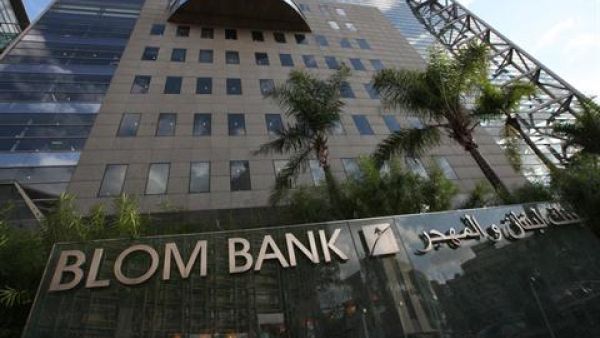A London-based financial research institute warned recently that the bomb attack on BLOM Bank could have negative implications on Lebanon’s economic and security outlook.
“The bank explosion will raise fears of future attacks on the country’s banking institutions, with negative implications for both the economic and security outlooks if it marks the start of a campaign of intimidation; for the moment our forecasts are unchanged,” the Economist Intelligence Unit said in a lengthy report on Lebanon published last month.
No one claimed responsibility for the bomb explosion outside BLOM’s headquarters on June 12, although some sources attributed the attack to the row between Lebanese banks and Hezbollah over the issue of US sanctions on the financial capabilities of the party.
Hezbollah did not make any comment on the attack nor did it condemn it.
The EIU report said that the bomb attack could have been a message from Hezbollah regarding the closure of accounts held by senior members of the organization.
The explosion did not cause any casualties, although it left some material damage to the building housing BLOM’s headquarters.
But the whole issue was resolved by Central Bank Gov. Riad Salameh, who instructed the Lebanese banks to close the accounts of those mentioned by the US Treasury only.
Some news media claimed that a handful of banks have closed accounts of social and medical institutions located in the southern suburbs of Beirut although their names were not mentioned on the US list.
“Hezbollah has come under increased pressure regionally and from the US for alleged terrorism financing. Although no claim of responsibility has been made, there is a widespread perception that Hezbollah was sending BLOM a message over its alleged overzealous implementation of a law requiring local banks to take steps against accounts held by individuals linked to Hezbollah,” the EIU said.
The report claimed that this attack could cause negative impact on the banking sector in general.
“The attack on one of Lebanon’s ‘big three’ banks could have deep repercussions for the country’s banking sector. The same day, Iran’s press agency issued a warning that Lebanon’s banks risked ‘unleashing Hezbollah’s wrath’ if they continued to apply US sanctions against the party. Even if the bombing turns out not to be the handiwork of Hezbollah it will still undermine confidence in Lebanon’s financial services sector, which has been insulated from the country’s wider insecurity in recent years. Although the banking sector has rallied in support of BLOM, with the Association of Banks in Lebanon declaring it an attack on ‘all Lebanon’s banks,’ the bombing is likely to unsettle other banking institutions in the country,” the report said.
Lebanese banks have repeatedly said that they are merely complying with all international resolutions on the fight of money laundering and terrorism financing, stressing that these measures are not aimed at any religious sect in Lebanon.
The report added that Lebanon’s banks remain the unwilling victim of a standoff between the U.S. government and Hezbollah, in which neither side appears ready to back down.
EIU also touched on economic growth and public debt.
“The uncertain domestic political scene and spillover from Syria’s civil war will continue to hinder investment, construction, financial services and private consumption for much of the forecast period. Industrial exports will also be squeezed by the high insurance costs and alternative (and more costly) routes required because of the Syrian war,” the report said.
It added that in short term, low oil prices and the recent deterioration in relations with the Gulf Cooperation Council countries will further retard economic growth, owing to the negative impact on tourism – a key contributor to the economy – and reduced financial inflows.
“We expect growth to slow to just 0.7 percent in 2016. The pace of real GDP growth will increase in 2017 (albeit staying low by historical standards) as consumers and investors adjust to the changed security landscape in Syria, relations with the GCC [are] gradually restored and a partial recovery in oil prices helps to bolster economic activity in the Gulf,” the report said.








